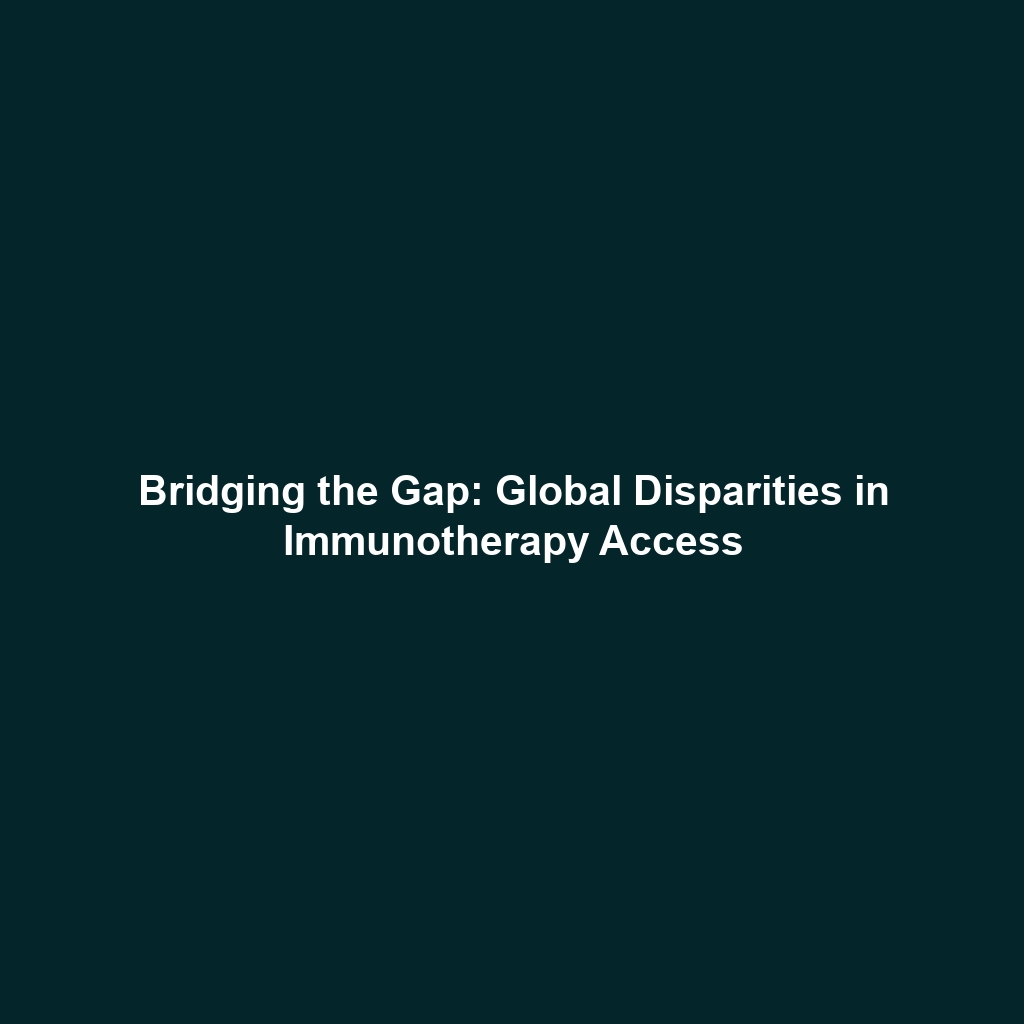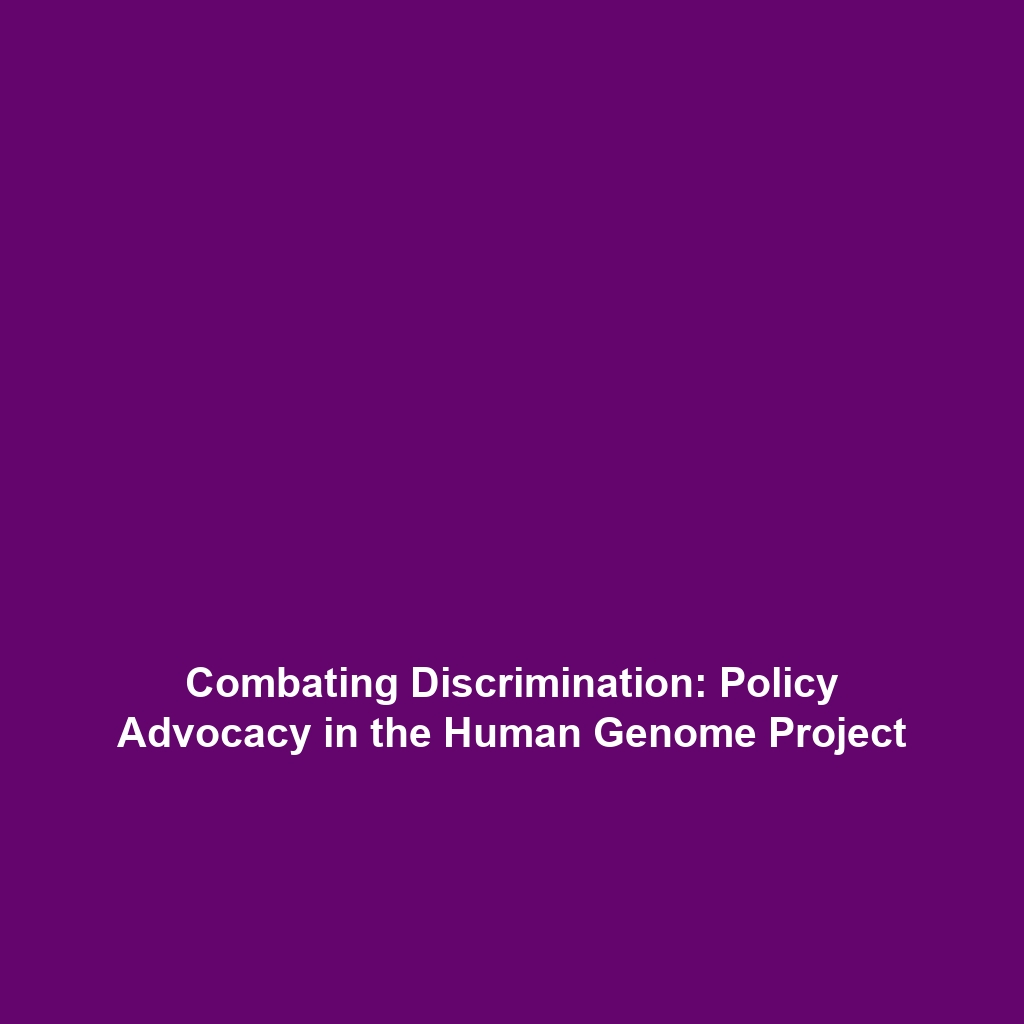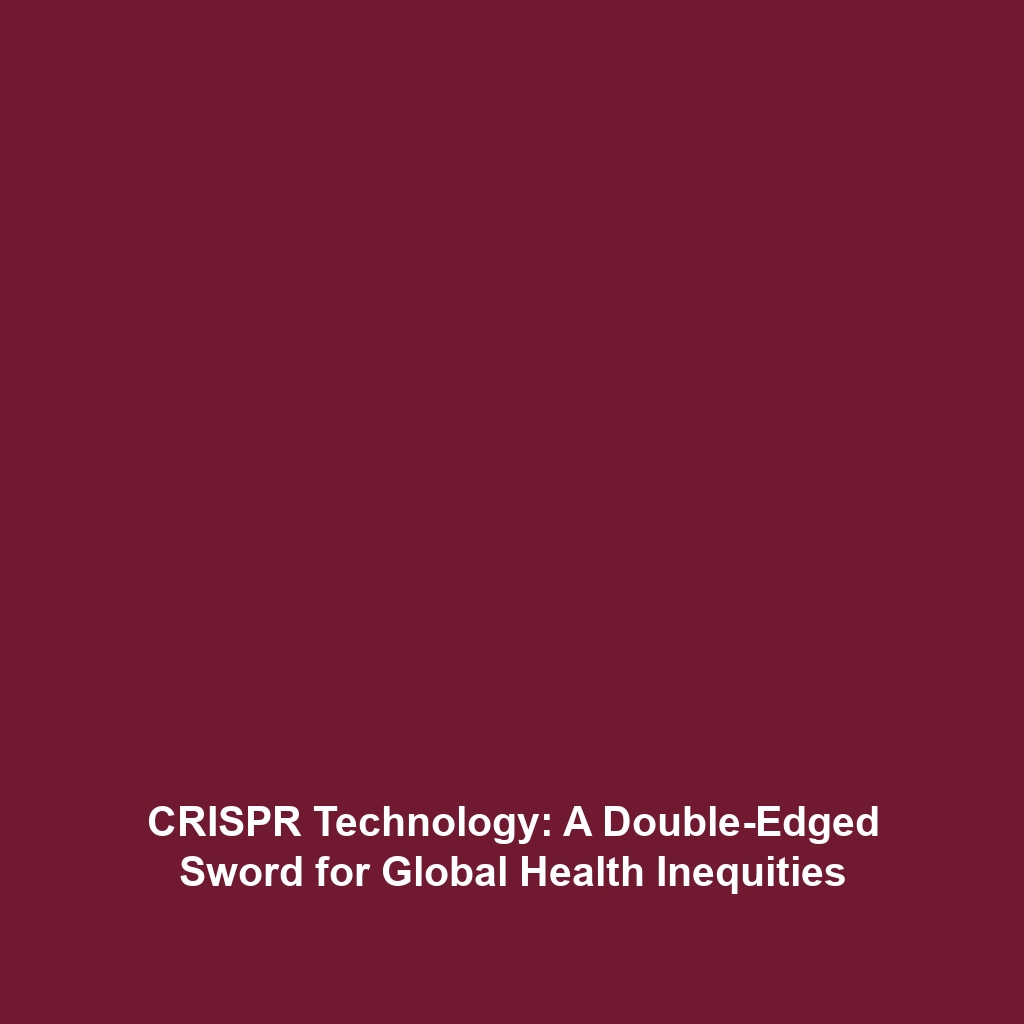Addressing Disparities in Access to Immunotherapy Treatments Worldwide
Immunotherapy has emerged as a revolutionary approach in the fight against cancer, harnessing the body’s immune system to combat malignancies. However, disparities in access to these treatments pose significant challenges, affecting patient outcomes globally. Understanding how to address these disparities is critical for the future of immunotherapy and cancer care. This article delves into the complexities surrounding accessibility to immunotherapy, shedding light on its global implications.
Key Concepts
To address disparities in access to immunotherapy treatments, it is essential to understand several key concepts:
- Equity in Healthcare: The principle that all individuals should have fair opportunities to access treatments regardless of their socioeconomic status, geography, or ethnicity.
- Global Health Disparities: Variations in health outcomes and access to healthcare across different populations, often influenced by systemic barriers.
- Immunotherapy Mechanisms: Understanding how immunotherapies work, including checkpoint inhibitors and CAR T-cell therapies, can help inform policies aimed at improving access.
Applications and Real-World Uses
Addressing disparities in access to immunotherapy treatments showcases various applications in the realm of cancer treatment:
- Public Health Initiatives: Programs aimed at educating communities on available immunotherapy options and navigating treatment pathways.
- Policy Advocacy: Efforts by organizations to influence legislation that improves funding and accessibility of immunotherapy treatments in underrepresented populations.
- Telemedicine: Utilizing technology to extend the reach of specialists and immunotherapy consultations to remote areas, helping bridge the gap.
Current Challenges
Despite progress, significant challenges exist that hinder the equitable distribution of immunotherapy treatments:
- Cost Barriers: High costs of immunotherapy can limit access for low-income patients.
- Geographical Disparities: Rural areas often lack access to specialized treatment centers equipped to provide advanced immunotherapy.
- Awareness and Education: Insufficient information about available treatments and their efficacy can lead to underutilization.
Future Research and Innovations
Innovative research is underway to tackle these disparities. Future efforts may include:
- Development of Affordable Biomarkers: Research into cost-effective diagnostic tools to identify eligible patients for immunotherapy.
- Novel Delivery Systems: Innovations in drug delivery that make treatments more accessible to remote populations.
- Collaboration with Nonprofits: Partnerships between researchers, healthcare providers, and organizations are key to increasing access and awareness.
Conclusion
Addressing disparities in access to immunotherapy treatments is crucial in the pursuit of equitable cancer care. By focusing on education, policy, and research, we can enhance access and improve outcomes for all patients. It is imperative for stakeholders in both healthcare and policy-making to collaborate and ensure that barriers to access are systematically dismantled.
For further reading on immunotherapy advancements and related topics, explore our articles on Immunotherapy Advancements and Healthcare Disparities.


